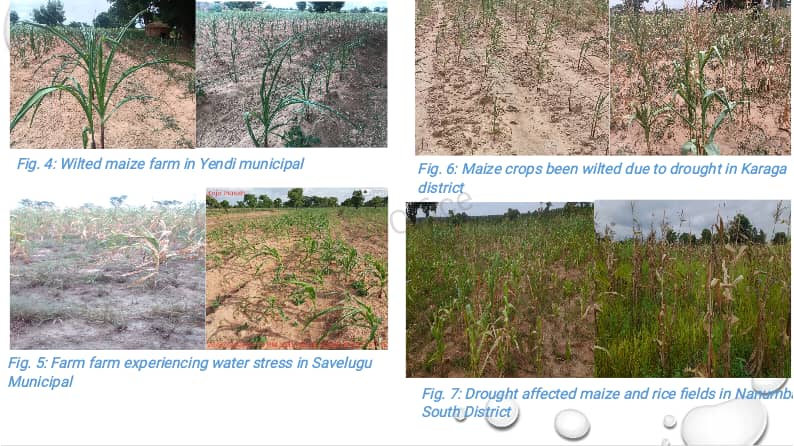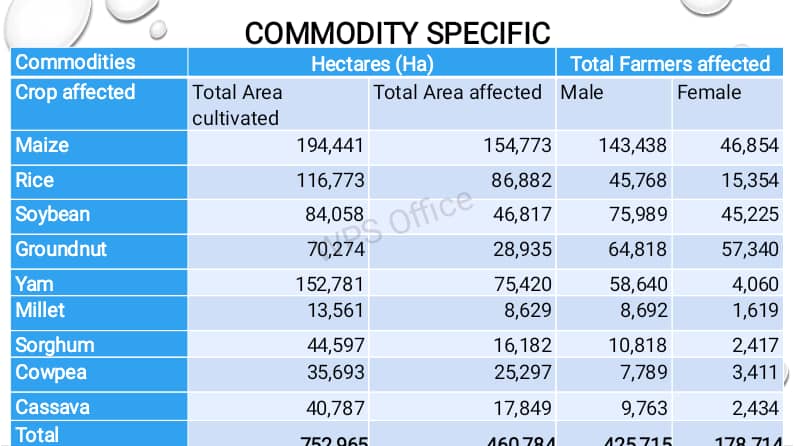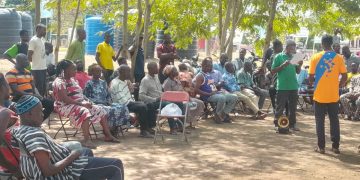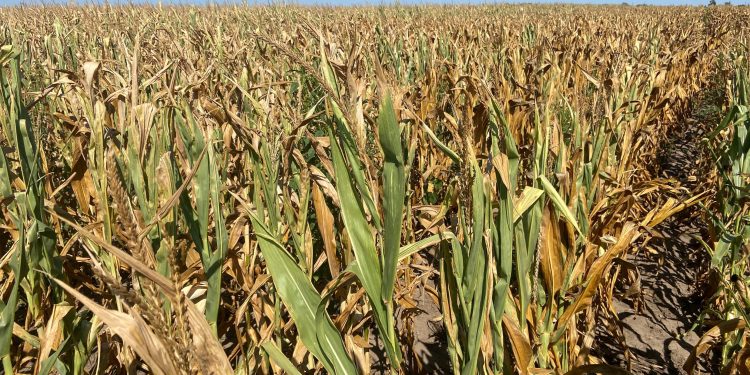The Northern regional director of the Ministry of Food and Agriculture, Haija Hawa Musah, has assured farmers affected by drought in the northern region of the government’s determination to compensate every farm to improve their livelihood despite losing their investments through the drought.
She noted that every farmer would be compensated based on the size of their farmland under cultivation during the 2024 farming season.
“The maximum compensation is for two acres of farmland for one thousand cedis for a one-acre size of farmland. That is what the government can afford now because the farmers are many. Part of Bono east region too we have farmers with such problem,” she explained.
Haija Hawa further revealed that the government will still support affected registered farmers with fertilizer to enable them to farm.
“Government will still give every affected farmer fertilizers. If you are not sure of farming this year, you can keep it for the next year’s farming season,” she assured stakeholders.
Speaking with agriculture stakeholders at an emergency meeting convened to discuss ways to mitigate the impact of the drought in the region.
The northern part of the country has been suffering from severe dry spells for the past three months.
The situation led to a raft of measures being outlined by the minister for agriculture, Dr Brian Acheampong which covers farmers across the savannah ecological zone.
In an exclusive interview with www.kumasimail.com correspondent Noah Hoenyefia in Tamale, Haija Hawa Musah, said, “government will give food to affected households as part of the strategy to sustain the farmers from hunger.”
she reiterated that the compensation packages for farmers affected by the drought will not be applied discriminatory against any farmer.
The detailed presentation revealed that the rainfall pattern did not favour nine security crops in the northern region. They are yam, millet, sorghum, cowpea, cassava, soybean, groundnut, rice and maize. Some farmers could not sow their crops.
Few farmers who took advantage of the early rains in June to sow experienced severe drought on their farms.
However, the harvesting of groundnut and yam is delayed for the season due to less moisture in the soil. It also affected farmers who planted early but could not apply fertilizer due to the less moisture in the soil.
According to the Haija Hawa, the situation increases the infestation of fall armyworms on most maize fields.

A total of 425,715 male farmers and 178,714 female farmers had the field affected by the dry spell.
A total of 154,773 hectares of maize farms were affected, whilst 86,882 hectares of rice fields were affected. 46,817 hectares of soybean and 28,935 groundnut fields were not spared by infestation and drought.

The northern regional director of the Ghana Meteorological Agency, Paul Stephens, says farmers should expect some showers in the coming days. “We are expecting rain by the end of October. The season ends in October, but it will extend to the first week in November.
“We are expecting rain and we are assuring farmers who want to farm to check the crop that can mature early to plant,” Stephen advised farmers.
Sources :ww.kumasimail.com / Noah Nash Hoenyefia / Tamale


































































